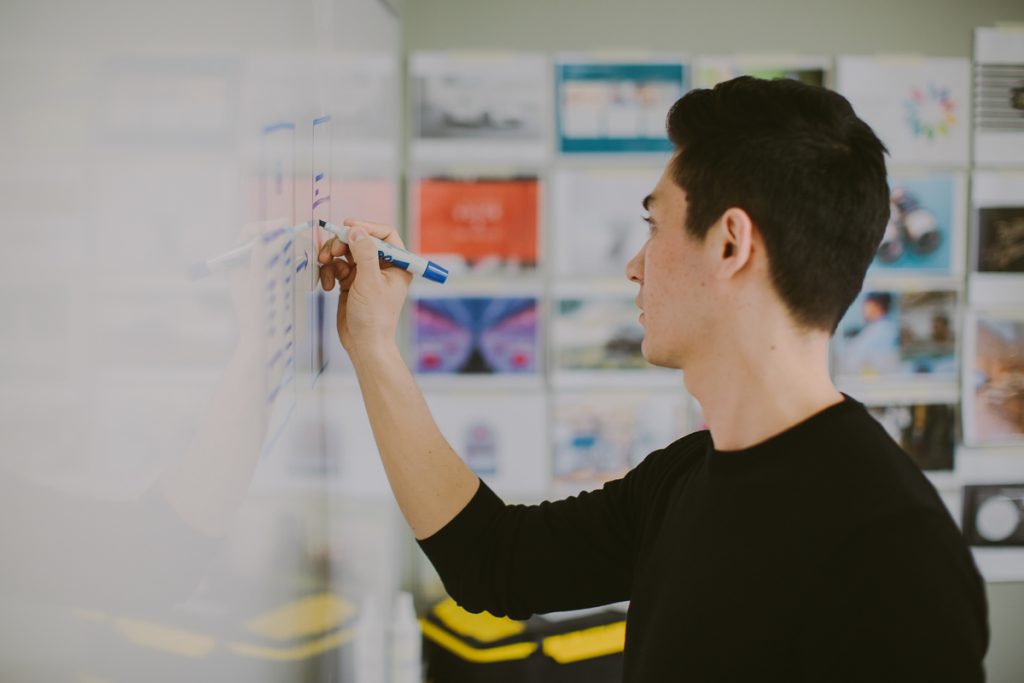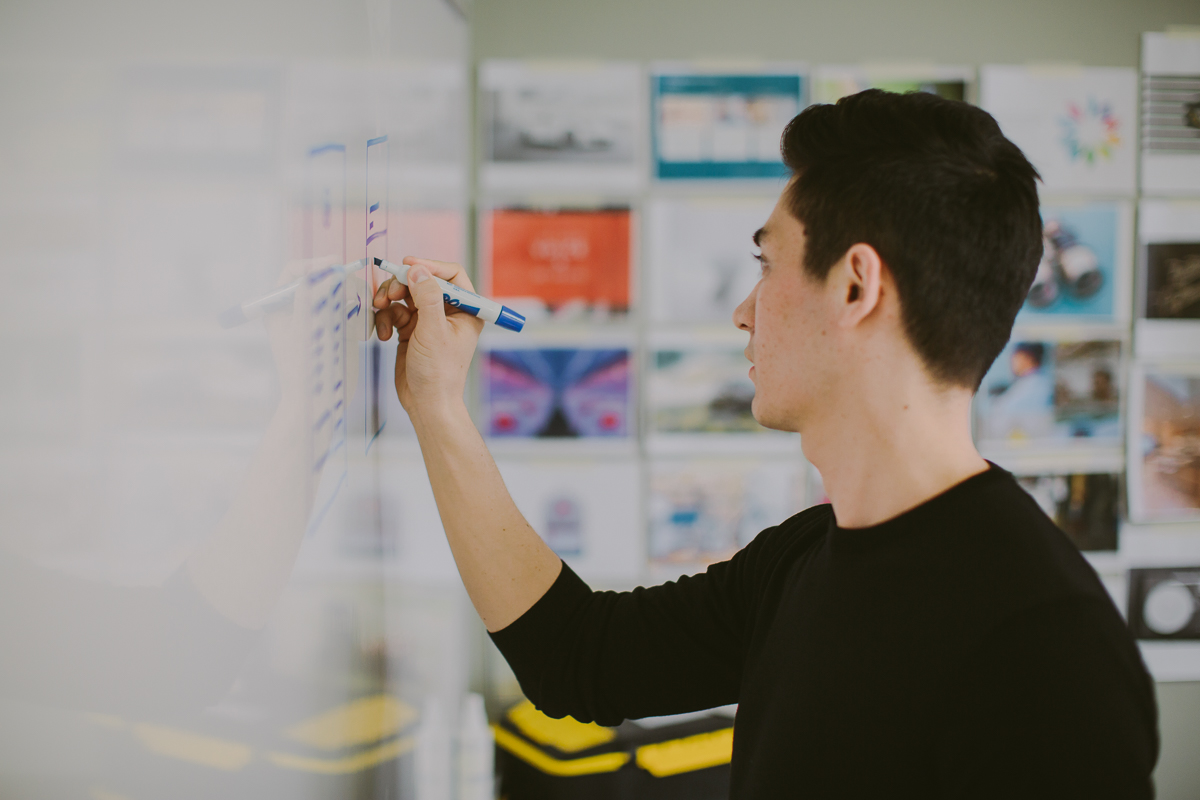Article summary
- 1. You’re Never Done Learning
- 2. Relationships Can Be Your Most Valuable Asset
- 3. Your Visual Design Abilities Are Not What Makes You Special
- 4. Big-Name Clients Aren’t Always What They’re Chalked Up to Be
- 5. Your Job Won’t Create 100% of Your Happiness, All the Time
- Realization as a Measurement of Progress
I was recently asked to serve on an internship/job panel for design students at a local university. Upon reflecting on my post-graduation life, I realized some things I wish I knew as a student about to enter the workforce. I compiled those realizations into a list of advice for soon-to-be graduating students.

1. You’re Never Done Learning
Whew! You graduated. You landed yourself a decent job. You’re done now, right? Nope. You’re never done learning. Never. I’ll repeat that again for good measure: You’re never done learning.
In order to stay on top, you need to be learning the newest trends, tools, and schools of thought. Not only will this continue to shape you into an excellent designer and collaborator, but it will help with your overall life satisfaction. The more skills you can add to your fancy designer toolbelt, the more valuable you will become—the more people you will be able to help—the more confident and satisfied you will feel with a job well-done.
So don’t give up that Skillshare account, and keep saving up to attend that conference. No investment is more valuable than one in your education.
2. Relationships Can Be Your Most Valuable Asset
Networking often gets a bad rap, but if you approach it the right way—with an open mind and a positive attitude—it can be a glorious thing.
I started attending local design events simply because I wanted to learn all that I could (see Tip 1). I also wanted to meet more like-minded people, because I missed the camaraderie I had in art school. I’ve met so many fabulous individuals this way. It turns out that the same people frequent most creative events. Because of this, over time, I’ve formed relationships with quite a few local makers.
I’ve never done this with the intent of gaining work from said relationships, but it often pans out that way. When you’ve proven to someone that you’re talented, competent, and highly motivated, they’re naturally going to think of you when a position at their company opens up.
3. Your Visual Design Abilities Are Not What Makes You Special
Your design skills aren’t as unique as you think they are. A good designer can pull off any style. A good designer knows the necessary tools of the trade and can learn new ones fairly painlessly. There are oodles of good designers out there, competing for the exact same jobs as you. So be an excellent designer instead of just a good one.
To be an excellent designer, in addition to the aforementioned, you also need to be a problem solver in every way imaginable. Sure, this includes solving how to fit 27 navigation items into one menu. However, it also includes being a good collaborator and communicator. It means being able to answer questions like how can I add the most value to this project?, or how can I best educate the customer on not only what the best solution is, but why it’s the best? Being able to talk about and solve questions of this sort will set you apart from many designers.
4. Big-Name Clients Aren’t Always What They’re Chalked Up to Be
So your former classmate worked on a campaign for XYZ Super Famous Corporation? It’s making you feel a little unaccomplished in comparison. Ask him/her how many hours of overtime they worked on that project. Ask them how much impact they really had in the higher-level creative direction.
I’m not implying that every large company is going to be demanding and hard to work with. What I am saying is that smaller companies can often be more flexible and receptive of your professional advice. There’s less corporate hierarchy to navigate in those relationships, making it easier to collaborate and gain access to the people and ideas that you need in order to create a great solution. Don’t write off the little guys.
5. Your Job Won’t Create 100% of Your Happiness, All the Time
In the past, I thought if I wasn’t 100% happy, it was my job’s fault. After all, I spend a significant amount of my time working. Work is supposed to be satisfying, right?
Fortunately, I’ve learned from my ways. Your life is not your job. You can be passionate and driven, and absolutely love what you do, but that alone won’t make you 100% happy in every aspect of your life.
Some days, my job does fully satisfy my needs. Other days it doesn’t, and that is okay. Learn to judge what you’re craving, and go after it in your own time. For me, that might mean setting aside an hour to brush up on my drawing skills. Other days, it might mean spending more time with friends and family, or volunteering for a cause that I’m passionate about. Sometimes I just need to run a few miles with my dog. Get to know yourself better, and continue fostering that relationship. It can only make you happier in the long run.
Realization as a Measurement of Progress
Upon realizing the above tips, I felt a little foolish. They all seem so obvious to me today. Feeling that way is a clear sign of progress, though. If I looked back to where I was three years ago and didn’t think my former self was slightly naive, then there would be a problem.
What realizations have you had, that you wish you could tell your former self? I’d love to hear them.


This is great Sarah! It was awesome being apart of the panel with you and catching up a bit!
Thanks, Ross! I enjoyed being on the panel with you as well. Glad to hear how well you and Bree are doing too!